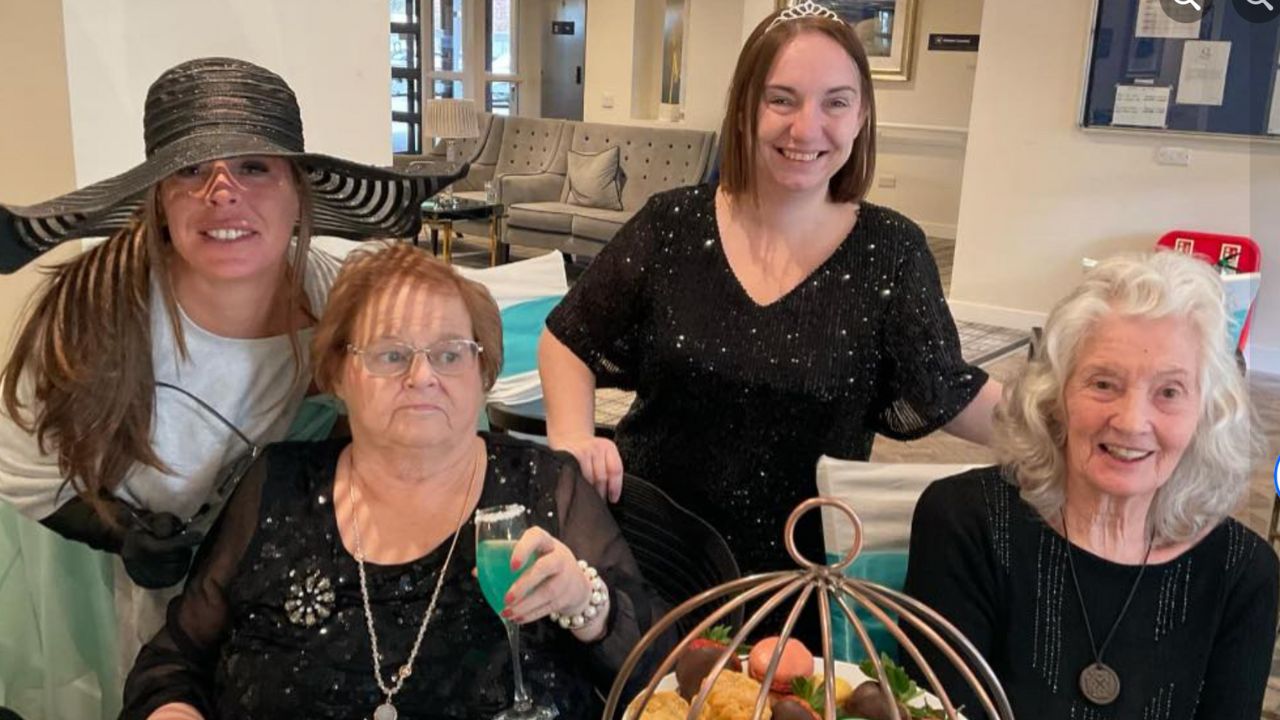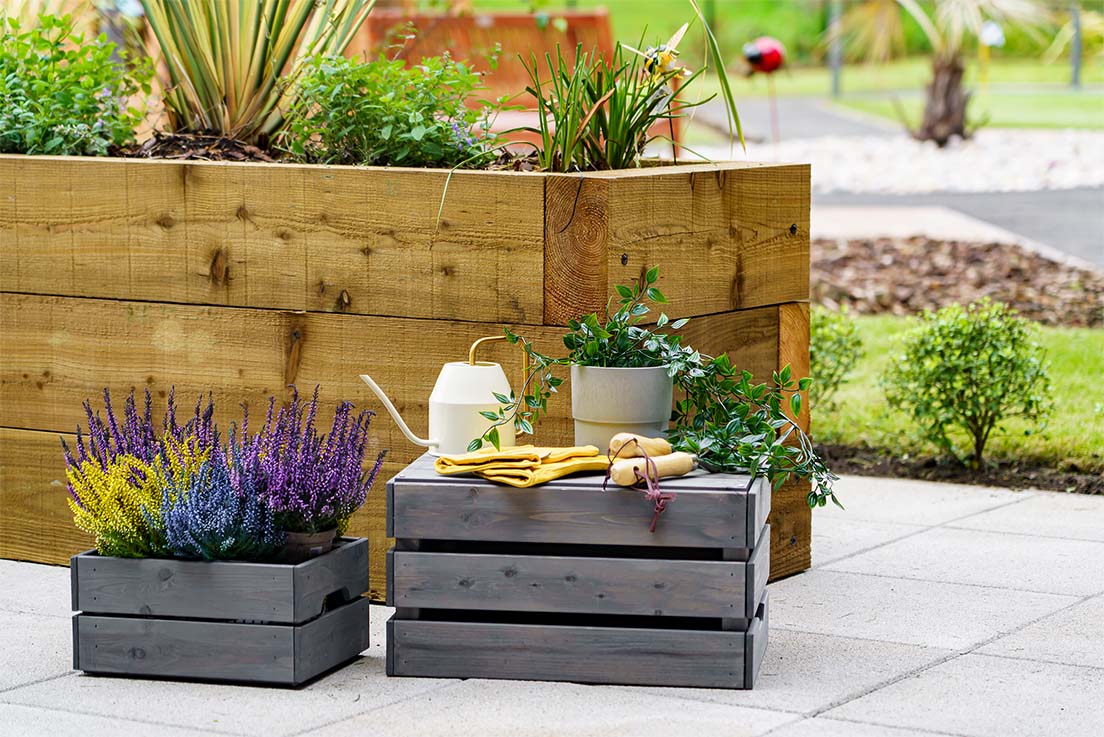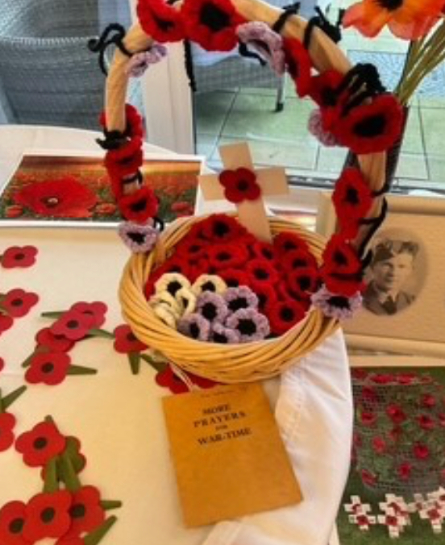The Importance of a Dedicated Dementia Unit in a Care Home
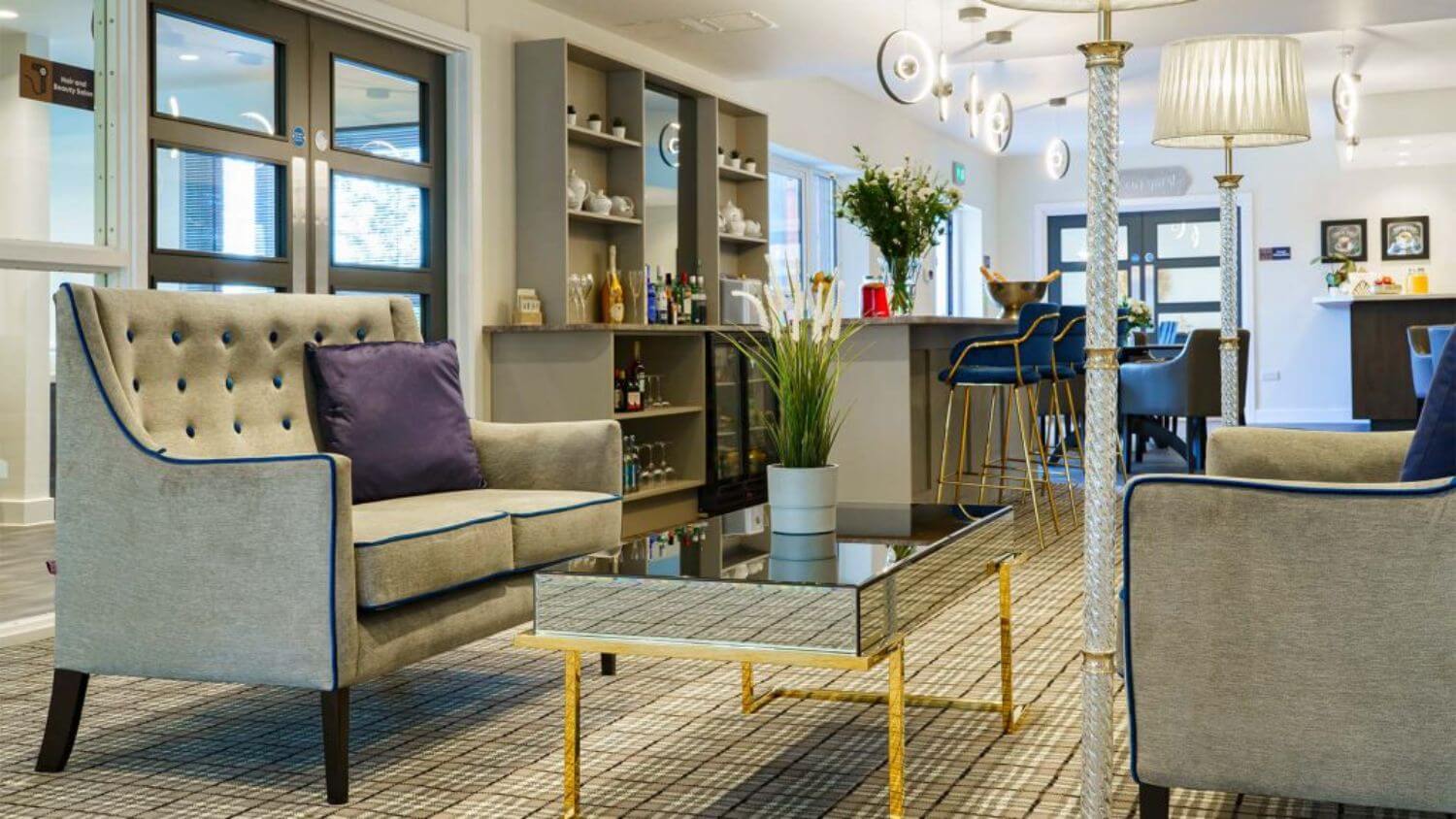
Many factors can contribute to an individual's quality of life whilst they reside in a care home or nursing home, and one of them is the physical environment in which they live. Providing a dementia-friendly environment within a care home is extremely important in making sure older people with dementia feel comfortable in their new home which aids in improving overall well-being.
Dementiastatistics.org states that 944,000 people currently suffer from dementia in the UK, which is projected to increase in the future. To accommodate a person living with dementia, many dedicated dementia units are incorporated into care homes and nursing homes to provide a high standard of dementia care and support. At the beginning of their diagnosis, residents may only need small amounts of assistance with their daily tasks and gentle reminders throughout the day.
When a Person with Dementia Can No Longer Live at Home
As their dementia progresses, a person will eventually reach a point where they become dependent on someone on a 24-hour basis which becomes a full time job for a loved one to assist with tasks such as personal care, medication management, dressing, washing, communicating and activities requiring fine motor skills. This is when a loved one may acquire lasting power of attorney. A lasting power of attorney gives a relative the legal authority to do the decision-making on behalf of someone, which is common when someone gets diagnosed with dementia.
The next appropriate step would be to contact your local authority where a team of social workers can assess your loved one's care needs by conducting a needs assessment, to help you decide whether it's the right time to move them to a care home or nursing home. The local authority will also recommend suitable care homes in your local area that can provide the right level of care as well as inform you about the financial support that may be available to help with care costs that are charged on a weekly or monthly basis. This is dependent on a person's financial situation.
There are multiple ways in which a care home or nursing home can be adapted to accommodate a person living with dementia including using signs above every door, contrasting colours of furniture around the home, wider hallways, personalised bedroom doors, memorabilia and assistive equipment. Providing a dedicated dementia unit has a positive impact on residents for an improved quality of life. We have outlined the top 6 benefits of a dedicated dementia unit in a care home.
Why is a Dedicated Dementia Unit Important?

Bedroom Personalisation
Residents with dementia can find it difficult to navigate themselves and can often experience uncertainty with their surroundings. Allowing them to personalise their doors and their bedrooms, makes it easier for a resident to identify which room is theirs, which will remove any feelings of confusion or agitation. A care home will also ensure the bedrooms within a dementia unit are spacious and safe by removing all clutter or any potential dangers to the residents. Mobility aids such as rails, profile beds and riser/recliner chairs will be available to help someone achieve an independent life as much as possible within a care home.
A dementia-friendly care home will have considered the following for their bedrooms:
- A toilet, sink and shower that is accessible
- Clear spaces to navigate around in
- Devices that are user-friendly and display the date and time
- Assisted equipment such as profile beds
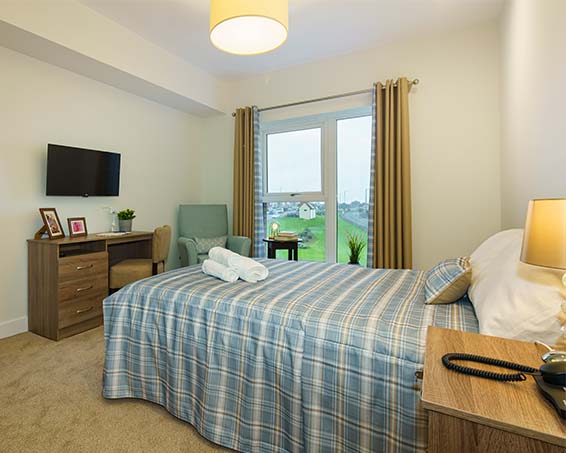
En-Suite Bathrooms
Having a bedroom where a resident can enjoy their private space and a good night's sleep, offering an accessible, private bathroom is equally important. Providing an en-suite wet room is needed for residents as they are able to complete many of their personal care tasks in close proximity to their bedrooms, making it easier for them as it is all in one place and accessible both day and night.
A dementia-friendly care home will have considered the following for their bathrooms:
- A non-slippery fall to reduce the chance of falls occurring
- The colour contrast between the floors, walls and furniture
- Protection for residents against scalding hot water
- Simple, easy-to-use appliances
- An easy entrance to the wet room
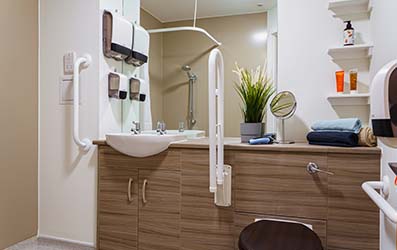
Assistive Equipment
There are many pieces of equipment and devices that can be used to benefit residents within the dementia unit including stair lifts, ramps, profiling beds, flood detectors and nurse call systems. This equipment will help residents complete their daily tasks with ease and reduce frustration or danger associated with everyday tasks.
A dementia-friendly care home will have considered the following for their equipment:
- Adopting new technologies that encourage independence
- Implementing equipment that aids with mobility
- Introducing equipment that keeps residents safe such as motion alarms
- Incorporating memory aids such as a radio and alarm clock

Altered Lighting
Lighting is one factor that is extremely important to a person living with dementia because residents need to see their environment clearly and make sense of it. Dementia residents need to be able to identify all signs, rooms, furniture and other people for peace of mind. Using effective lighting this will reduce falls and allow them to successfully partake in engaging activities held within the care home.
A dementia-friendly care home will have to consider the following for its lighting:
- The impact that natural lighting can make
- Placing light switches in plain sight and in reachable locations
- Making use of automatic sensors for light where they can

Dining Areas Made to Be Safe and Secure
In care homes and nursing homes that offer a dedicated dementia unit, residents should be able to easily recognise and find all dining areas and be able to make their way around freely. This means that they can live confidently and comfortably during their time at the care home, and enjoy independence where possible. Care homes also understand the impact that certain food smells can have on residents and their appetites so will use the food to evoke those feelings. Many care homes give residents the freedom to eat where they want and when it suits them, so if I resident prefers to eat elsewhere from the dining room, trained staff encourage this to ensure residents eat and finish their meals.
A dementia-friendly care home will consider the following for its dining areas:
- Ensuring tables and areas are free of clutter
- Relaxing music to play at mealtimes
- Staff available to assist with eating
- Offering cutlery that is easy to hold
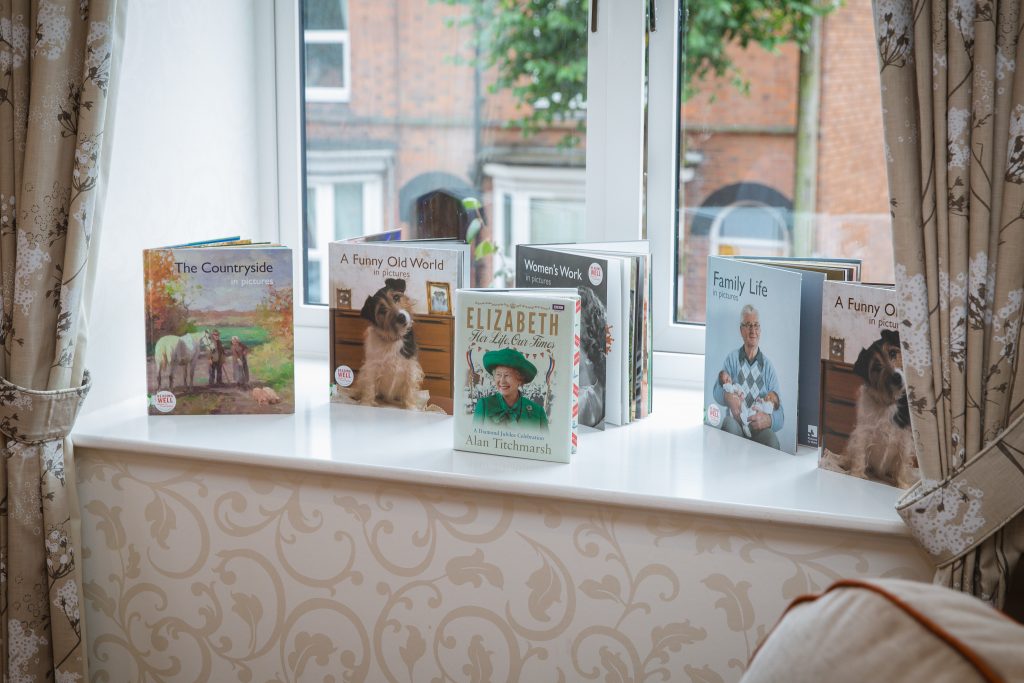
Reduced Noise Levels
Within a dedicated dementia unit, the care home team will work hard to ensure the noise levels are reduced and each room for a good night’s sleep and no distractions during downtime. Calming and music or songs from the past can be played in each room to help with providing a relaxing ambience and block out any unwanted sounds.
A dementia-friendly care home will have considered the following for reducing noise:
- Absorbing furniture and materials
- Calming music
- Offering ‘quiet’ areas where residents can go and sit to relax
How do Care Homes Support Their Dementia Residents?
To fully support a resident with dementia, care homes will incorporate the following:
Qualified and Experienced Staff Available on a 24-hour Basis
Each dementia care home will have its dedicated care staff that are trained in the specific care type they work in, such as dementia care. These individuals will work full-time, ensuring residents receive first-class care and support whenever they should need it. A multidisciplinary team including a qualifed nurse will assess a person's individual needs and curate a care plan that's tailored to their care requirements and lifestyle choices.
An All-Inclusive Games & Recreation Programme
As part of the facilities and amenities within a care home, a games & recreation programme is offered to residents. Activities coordinators will work with their teams to produce a weekly schedule where residents can partake in their favourite activities regularly. These are to help support a person’s cognitive function and overall well-being, as well as use their fine motor skills through activities such as reminiscence activities, singing and dancing, social activities or arts & crafts. Social contact is important as it helps to reduce social isolation which is common in older people, especially those with dementia.
An Environment Where Residents Feel Safe and Secure
Care homes with dedicated dementia units will provide their residents with an environment where they feel at home. Making sure each room is tailored specifically to their needs is important when providing residents with the best quality of life. Many dementia care units have decorated rooms that have been purposefully built to help relieve symptoms associated with dementia or other health conditions such as sensory rooms.
Sensory rooms in a care home are a specially designed space that incorporates various stimuli to engage and stimulate the senses of residents. These rooms typically feature elements like soft lighting, soothing sounds, tactile surfaces, aromatherapy, and visual displays, creating a multisensory environment. The primary goal is to provide residents, especially those with cognitive conditions like dementia, a therapeutic and calming experience.
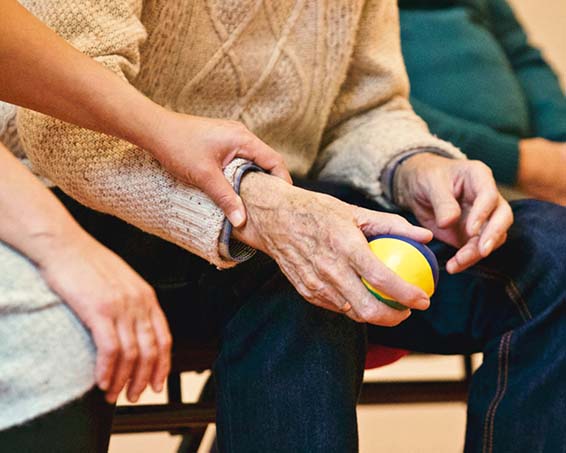

Dementia Care at Queens View Harbour Care Home
Here at Queens View Harbour Care Home in Troon, we are a luxury care home offering unrivalled levels of specialist Dementia Care as well as Nursing Care, Residential Care and Respite Care. Our home is staffed with Care Assistants, Registered Mental Health Nurses and Registered General Nurses who ensure each resident lives the best lifestyle in a safe and secure environment through a person-centred approach to long-term care.
Our team collaborates closely with residents’ loved ones to make sure we look to cater to their needs in a way that satisfies everybody and offer our support to family and friends during this process. We are a private care home located by the sea and our mission is to ensure everyone can live the life they desire.
We want our residents to consider Queens View Harbour as their home away from home. We are proud of the luxury dementia unit we have created to ensure people living with dementia receive the highest level of dementia care and support. We actively encourage residents to explore their hobbies both inside and outside the home through community events where residents can form lifelong bonds with like-minded individuals.
Get in Contact Today
Knowing when the right time is to move a loved one to a care home can be a difficult decision as everyone's individual circumstances are different. We are here to help with the decision process by answering any questions you might have regarding our dementia care services at Queens View Harbour Care Home. We invite you to get in touch with our healthcare professionals by emailing info@queensviewharbour.co.uk or by calling 01292 435 971 for further information on how our care services can help you.
